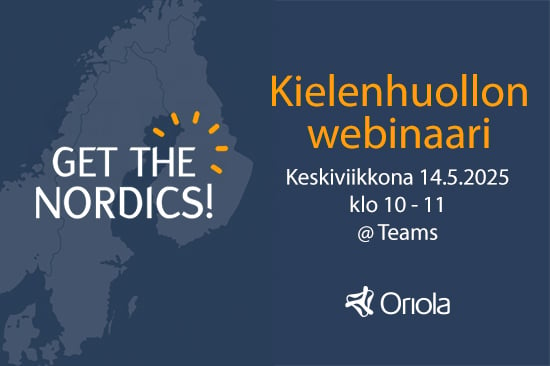We are committed to be carbon neutral by 2030
16.12.2019
Sustainability is at the heart of Oriola´s business. Our sustainability strategy is strongly connected to our purpose “Health for life”. We are also committed to the UN´s Sustainable Development Goals (SDGs). As a company operating in the health and wellbeing industry, we promote a healthier life in everything we do – whether it is related to society, our personnel or the environment.
Wellbeing of the planet is an important part of a healthier tomorrow and we want to minimise the environmental impact of our operations. That is why we have set an ambitious goal to be carbon neutral by 2030.
“As a short-term target, we are aiming to use 100% renewable energy and have 85% recycling rate by the end of the year 2022,” says Katja Tolkki, Head of Sustainability.
Carbon footprint helps to direct our actions where it matters
Carbon footprint is an important tool to ensure that we focus on the right areas in our efforts to achieve carbon neutrality. Oriola’s carbon footprint consists mainly of three emission groups: Direct emissions come from company leasing cars and refrigerators in our warehouses, covering approximately 10% of our emissions. Emissions from purchased energy come from electricity and heating, which represent approximately 25% of our emissions. The third group, other emissions from our supply chain, includes packaging materials, transport, waste, business travel and employee commuting, and it creates approximately 65% of our emissions.
“Our carbon footprint clearly demonstrates the importance of taking other emissions from our supply chain in the scope if we really want to make an impact, as they represent over a half of our emissions. It also means that we can reach carbon neutrality only in close cooperation with our customers and partners,” Tolkki notes.
A good example of this kind of cooperation is transport. It is the largest source of indirect emissions at Oriola, as subcontractors are responsible for our entire transport network. Together with them, we constantly aim to reduce emissions through route optimisation, the efficient usage of capacity and the broader use of alternative fuels.


